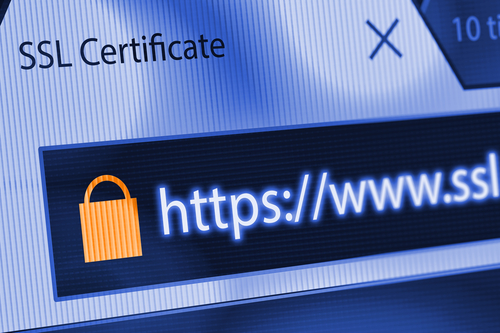In today’s digital landscape, SSL Certificates are crucial for securing online communications by encrypting data exchanged between web browsers and servers. They help protect sensitive information, such as passwords and credit card details, from unauthorised access. Understanding the differences between Domain Validated (DV), Organization Validated (OV), and Extended Validation (EV) Certificates—along with their verification processes—is essential for enhancing security and building user trust.
What Are SSL Certificates?
SSL Certificates are digital credentials that establish a secure, encrypted connection between users’ web browsers and a website’s server. By encrypting data, these certificates ensure that personal and financial information remains confidential and protected from potential threats.

Types of SSL Certificates
- Domain Validated (DV) Certificates
DV Certificates are the most basic type of SSL certificate, known for their quick issuance and affordability. They confirm only domain ownership, making them suitable for personal websites or small businesses with minimal security needs.
Verification Process: DV Certificates use automated checks, such as email verification or DNS record validation, to confirm domain ownership.
- Organization Validated (OV) Certificates
OV Certificates offer a higher level of validation than DV Certificates. They verify domain ownership and authenticate the organization’s legal identity, making them ideal for businesses that handle sensitive user information and need to establish a higher level of trust.
Verification Process: OV Certificates involve a thorough vetting process, including manual checks and the submission of legal documents to validate the organization’s identity and legitimacy.
- Extended Validation (EV) Certificates
EV Certificates provide the highest level of trust and assurance among SSL Certificates. They require extensive validation of domain ownership and a comprehensive examination of the organization’s identity, often indicated by a prominent green address bar in many browsers.
Verification Process: The verification process for EV Certificates includes detailed checks of the organization’s legal status, operational presence, and adherence to industry standards set by the CA/Browser Forum.
Why OV and EV Certificates Are Preferred
While DV Certificates are available, many businesses choose OV or EV Certificates due to their superior security and trust-building features. OV and EV Certificates offer more rigorous validation processes that confirm domain ownership and verify the organization’s legitimacy behind the website. This enhanced level of scrutiny provides users with greater assurance of the site’s authenticity and security. OV and EV Certificates offer valuable credibility and trust for organizations handling sensitive data or aiming to build a strong online reputation.
Why DV Certificates Are Generally Not Recommended
While DV Certificates meet basic encryption needs, they fall short in several key areas, making them less suitable for sites that handle sensitive information or require a high level of user trust:
⦁ Limited Validation: DV Certificates only verify domain ownership and do not confirm the organization’s legitimacy behind the website. This can be inadequate for businesses that need to build credibility and trust with their users.
⦁ Absence of Trust Indicators: Unlike OV and EV Certificates, DV Certificates do not provide prominent trust indicators in web browsers, such as a green address bar. This lack of visible assurance can affect user confidence and perceived security.
⦁ Potential for Misuse: The simplicity of obtaining DV Certificates means that malicious actors can easily create convincing but fraudulent websites. OV and EV Certificates, with their more rigorous vetting processes, reduce this risk by ensuring the legitimacy of the certificate holder.
Choosing the Right SSL Certificate
Selecting the appropriate SSL Certificate depends on your website’s security needs and the level of trust you wish to establish with users:
⦁ DV Certificates: Suitable for personal websites or blogs with minimal security needs. However, consider upgrading to OV or EV Certificates if you handle sensitive data or seek to build greater user trust.
⦁ OV Certificates: Ideal for businesses that manage sensitive user data, providing enhanced trust and security assurances. OV Certificates are recommended for sites needing to demonstrate legitimacy and build user confidence.
⦁ EV Certificates: Recommended for e-commerce platforms, financial institutions, or any entity seeking the highest level of assurance and visibility. EV Certificates offer the greatest user trust and confidence.
Conclusion
SSL Certificates are essential for securing online interactions and protecting sensitive information from cyber threats. Understanding the distinctions between DV, OV, and EV Certificates and their verification processes enables website owners to make informed decisions that enhance security and foster user trust. Whether managing a personal blog or a large e-commerce site, choosing the right SSL Certificate is crucial for maintaining online credibility and safeguarding user privacy.
Ensure your website’s security today by selecting the SSL Certificate that best fits your needs, reinforcing your commitment to data protection and user trust.
To find out more about SSL Certificates, contact us at https://www.netrust.net/contact-us/ now.
Follow us on LinkedIn for the latest happenings/updates.


